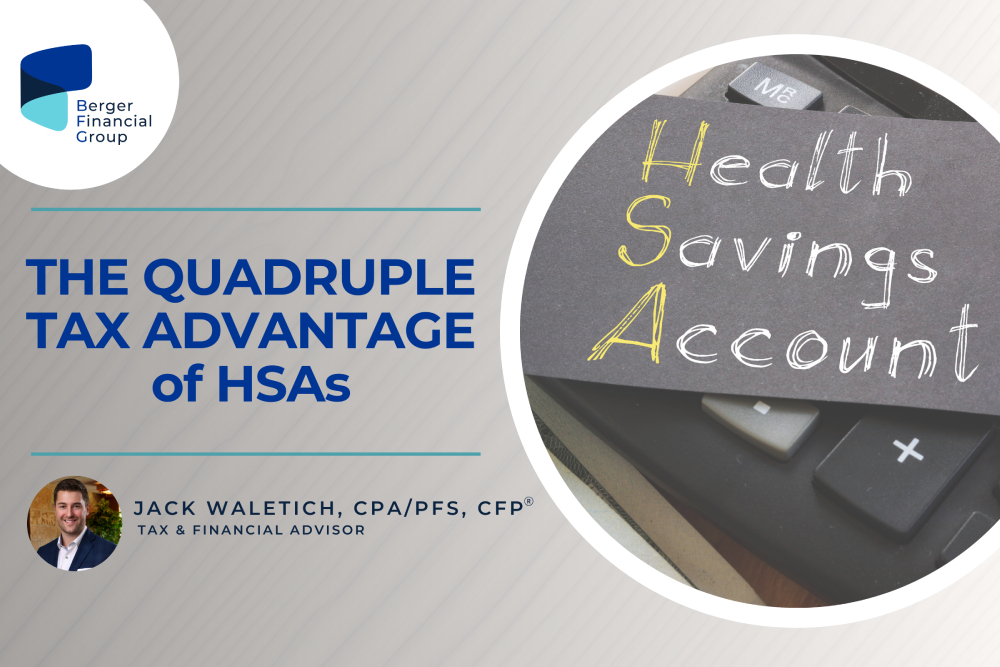Many are familiar with the 3 big tax perks of an HSA:
- Contributions to a Health Savings Account provide an income tax deduction.
- Investments within a Health Savings Account grow tax-free.
- Withdrawals out of a Health Savings Account are tax-free when used on qualified medical expenses.
The fourth advantage comes in a slightly different area: payroll tax.
For most wage earners, payroll tax is automatically deducted from each paycheck at a rate of 7.65%. When a contribution is made to an HSA through a payroll deduction, it not only avoids income tax, but it also avoids payroll tax. Compare this to other pre-tax deductions such as a 401(k) (which avoids income tax but does not avoid payroll tax) and you’ll see that this is yet another unique advantage of a Health Savings Account.
Tip: If you have the option of contributing to an HSA through a payroll deduction or by contributing funds after you’ve been paid, consider choosing the payroll deduction. HSA contributions that are not done directly through payroll will cause you to miss out on the 7.65% benefit because you will be funding the account with dollars that have already been subject to payroll tax.
Here are some other interesting facts about Health Savings Accounts:
You can reimburse yourself for qualified medical expenses incurred in prior years.
This is the key characteristic that unlocks the true wealth-building potential of HSA accounts. There is no time limit on how long you can wait to reimburse yourself for qualified medical expenses that were paid out of pocket. This means that you can let the investments in your HSA grow in a tax-free manner for years or even decades.
To employ this strategy, you must keep ongoing records and receipts of your medical expenses over the years. This can include little things like over-the-counter medicines, menstrual products, sunscreen, and other everyday expenses that most people don’t consider to be medical expenses.
Over time, your HSA contributions will benefit from compounding investment growth. Then, if you have sufficient records of prior medical expenses, the draws (reimbursements) from your HSA will be tax free regardless of what they are spent on.
You can reimburse yourself for Medicare premiums in retirement.
Although supplemental policies are not eligible, any premiums paid for Medicare Part A, B, C, and D are eligible HSA expenses. These are expenses that you know you’ll be spending thousands of dollars on each year in retirement. Investing in your HSA now is a great, tax-free way to prepare for it.
Premiums for long-term-care insurance are also eligible HSA expenses, up to certain limits.
HSAs double as a retirement account.
Disbursements from an HSA that are not used to pay for past or current medical expenses are included in a taxpayer’s gross income and subject to a 20% penalty. However, that penalty goes away once the taxpayer reaches age 65. At that point, non-qualified disbursements are simply included in gross income, much like an IRA. However, HSAs are not subject to required minimum distributions (RMDs).
Summary
The tax advantages of HSAs make them a unique and powerful tool to not only plan for future medical expenses, but also build wealth and prepare for retirement. Work with your advisor to see if funding an HSA is the next step in your journey to financial independence.




